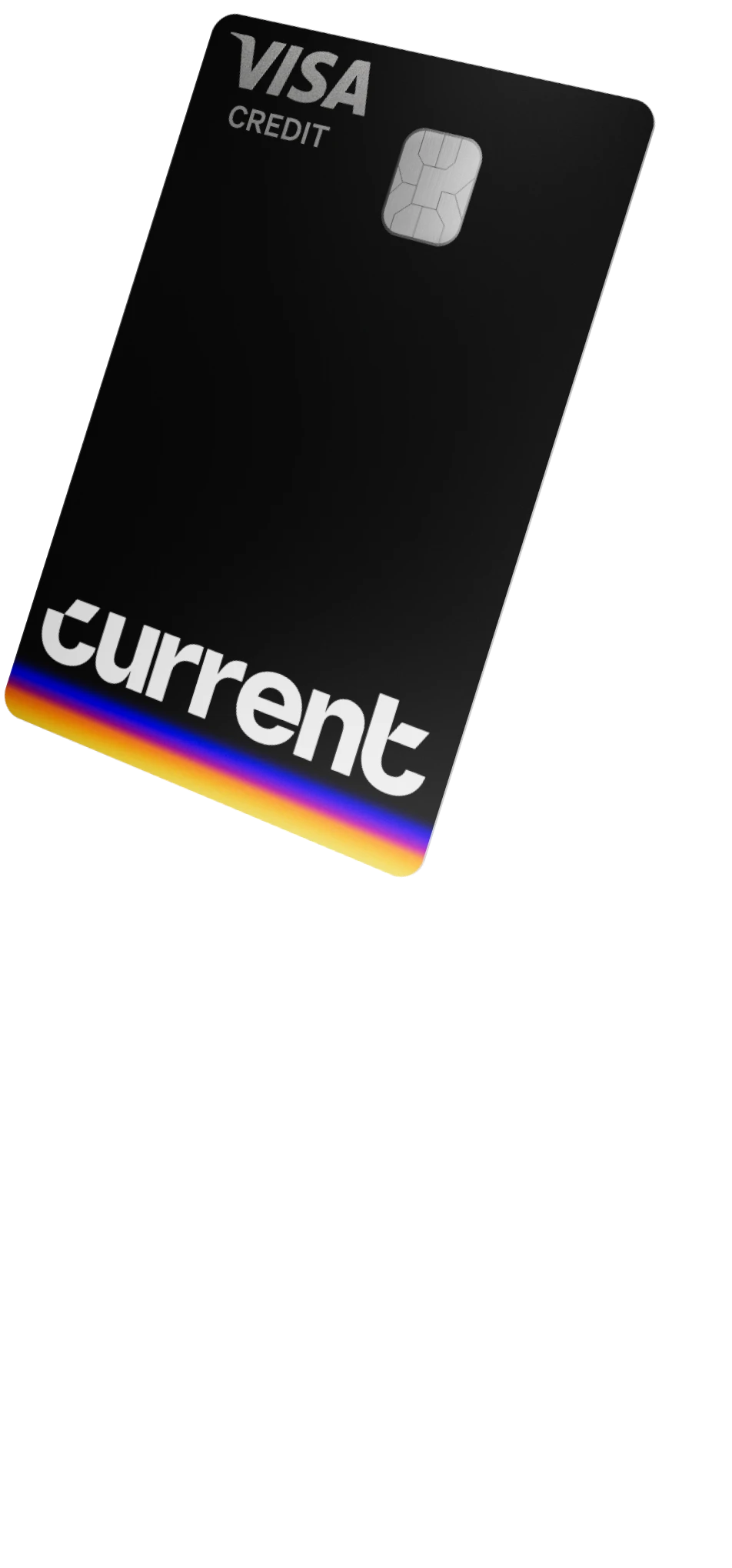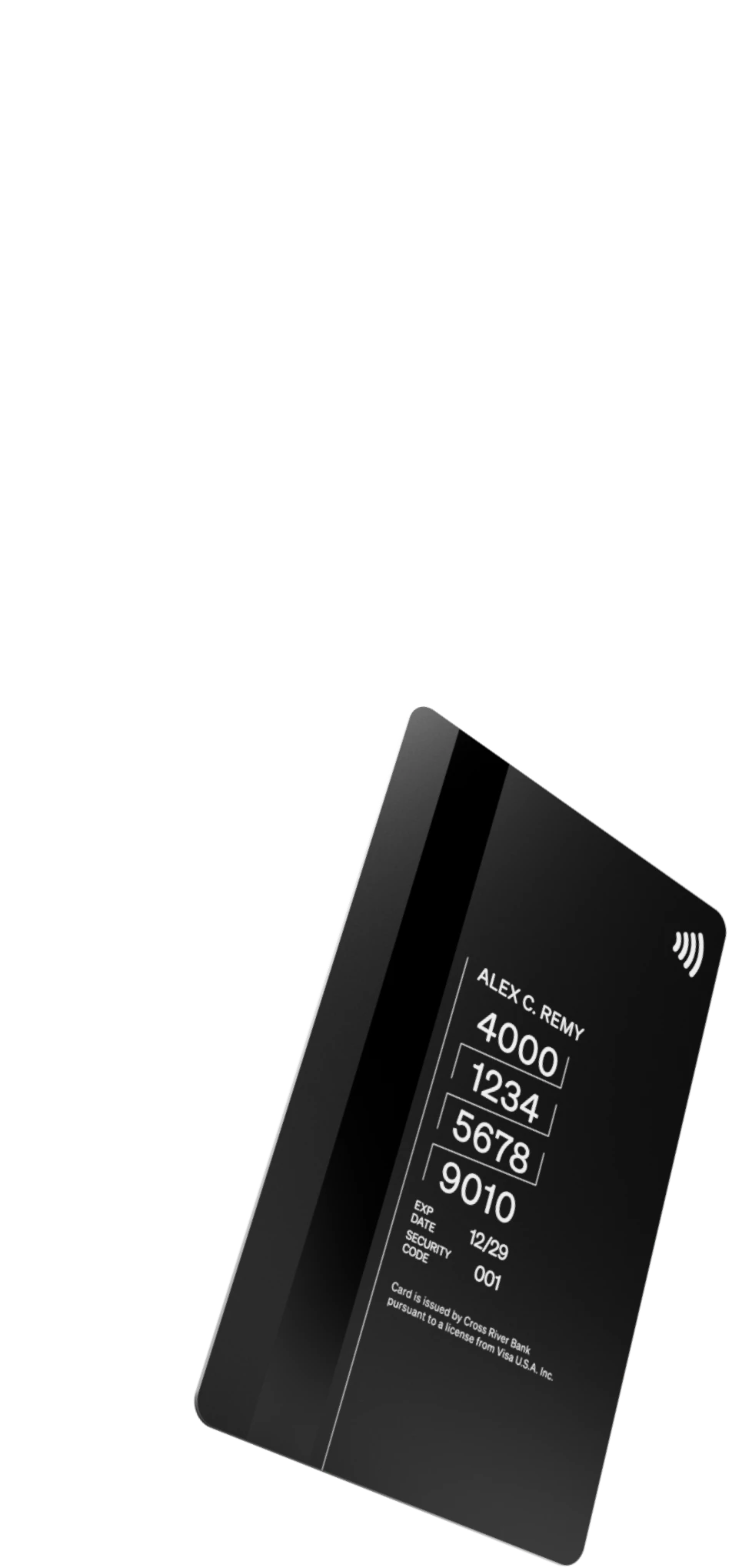Pros and cons of online banks

Many people use online banking for the ease of having all their financial needs at their fingertips.
Are online banks safe? Yes, they offer a safe way of managing your money.
Online banks and online banking exist in the same sphere, but they refer to distinct entities. An online bank is different from online banking. Online banks offer mobile and internet access to your accounts, in the way that a brick-and-mortar bank does, but online banks don’t have physical locations. They exist purely on the internet, although some may partner with traditional banks.
How to Know if an Online Bank Is Legitimate
If you want to try an online bank, it may be a good idea to check if it is insured by the Federal Deposit Insurance Corporation (FDIC).
Often, online banks are partnered with traditional banks. This might offer you more peace of mind when choosing to use an online bank. At Current, your money is FDIC-insured on a pass-through basis up to $250,000 each at each of our partner banks, Choice Financial Group, Member FDIC, and Cross River Bank, Member FDIC.
Getting Help
Online banks are very popular because of all the features and functions they offer, but there are still concerns some people have about the safety of using internet-only banks.
For example, it might be easier getting help from a traditional bank than it is with some online banks. With an online bank, you can’t walk into a physical building to speak to someone. But Current offers industry-leading member support, and we’re available 24/7 via live chat every day of the year.
But because of their online-only nature, online banks are more likely to offer truly useful and effective customer support. You are highly likely to get your issue sorted out with an online representative, and you don’t have to leave the comfort of your own home to do so.
Technical Problems
A potential con of online banks is that, like any website, they can go down. Website outages can happen either for planned reasons (like maintenance) or unexpected reasons (like a simple technical problem causing an outage or a malicious attack).
Online banks tend to have highly enhanced mobile apps. The level of sophistication used in online banks can outmatch that of the websites used by traditional banks.
The same goes for the mobile apps offered by online banks compared to those offered by brick-and-mortar institutions. Since the apps are the lifeline for online banks, they offer a wealth of features and functions, often in a very convenient and streamlined presentation. While most bigger-name traditional banks will have top-of-the-line websites and apps, local and regional banks will struggle to compete in this field.
Around-the-Clock Convenience
Since an online bank conducts its business entirely online, everything can be done at your convenience. If you want to open an account at a day and time when a traditional bank might be closed — on a weekend or holiday — online banking can still give you the service you need. It only takes 2 minutes to open an account with Current.
Similarly, you won’t have to deal with opening and closing hours, driving to the bank’s location, waiting in line, or frustrating amounts of paperwork. An online bank will give you full access to your finances and a range of support and service options, all at your fingertips at any time of day.
You can open a new account with Current in as little as 2 minutes. Download the app, and you’re ready to set it up.
Cybersecurity & Online Banking
Because more and more people are trusting their finances to online banks, these institutions have become popular targets for hackers and other cybercriminals. Online banks are not oblivious to this danger, so they are prepared. They tend to have the best security protocols in place to defend against attacks, and also to control for the possibility of a cybercriminal trying to log into your account as you.
Additionally, most online banks now have contingency plans in place to cover your losses in the event of a security breach. Responsible online banking does mean practicing basic safety on the internet and social media. For example, don’t give out any information about yourself that a hacker can use to guess your security questions, such as the street you grew up on, the make of your first car, or your mother’s maiden name. Don’t give out your phone number or email either.
Because online banks don’t have any overhead costs, they have fewer maintenance expenses that they pass on to their customers. At Current, we don’t require a minimum balance. We don’t have any hidden or overdraft fees.
Relationship Banking & Large Cash Withdrawals
Online banking offers many comforts, but it isn’t for everyone. If you value face-to-face interactions with a banker, this probably won’t be the medium for you.
With online banks, you’ll still be able to get 24/7 customer assistance with a concern or question. However, using online banks generally means there’s less of a relationship to cultivate between you and the bank. There are exceptions to this, however, particularly with online banks. At Current, we have a robust member community.
You might not be able to make large cash withdrawals from online banks. Most banks require a signature to authorize a cash withdrawal over a certain amount (part of federal banking rules regarding large cash transactions). If there is no physical location where the transaction can happen, you might not be able to get the money you need. This isn’t true with all online banking, however. At Current, we have 40,000 fee-free Allpoint ATMs in the U.S., making it easy for you to withdraw money without fees.
Again, an online bank that works with a traditional bank might not have this issue. Some of these banks might be integrated with digital payment services, allowing you to do what would normally be cash transactions in this manner. But this step might be more complicated with an online bank than it would be with a traditional one. At Current, we offer cash deposits at over 60,000 stores, so there is no need to visit a bank.
With Current, deliver paychecks up to two days faster with direct deposit for our Premium Account members.
How to Stay Safe With Online Banking
Safety is a key concern when it comes to online banks, so there are many ways you can make sure your experience is as secure as possible.
- Always type the bank’s website into your browser. Don’t use a link you were emailed or texted.
- If you’re using a browser, make sure that the bank’s website is using an HTTPS protocol (a secured website), not an unsecured HTTP protocol, before you put your username and password in.
- Never give out your phone number, email address or 2FA code.
- Be wary of any messages you receive on social media claiming to be from an online bank. There are many fraud scams on social media related to banking.
- Change your password regularly if you log in with a username/password. Most online banks (such as Current) use 2FA now. Never give out your 2FA code.
- Use multi-factor authentication, like receiving a code via text or email or answering additional security questions, every time you want to access your account. Some apps can access your smartphone’s fingerprint scanner, allowing you to use your own fingerprint as verification of your identity.
- Set alerts and notifications for any activity on your account, so you can instantly call the bank if there appears to be a fraudulent transaction.
- Consider using a virtual private network (VPN), so you can safely use your online bank’s app or website when you’re on a public Wi-Fi network. However, it is generally safer to only do your online banking when you’re on a Wi-Fi network you know and trust.
If you choose Current for your online banking needs, you will get access to many benefits and features. For example, an instant gas hold refund is a unique service that we offer, ensuring you have access to all your cash all the time. We also have instant spending notifications for added security (if you enable push notifications) and you can view all your transactions directly on the homescreen of the Current app. We also offer savings pods, budgets and the ability to instantly transfer money for free to other members on Current.
Our 24/7 member support means that you can get the help you need, when you need it, without physically going into a bank branch. Just use the app to get connected to your accounts or to an agent within seconds.
Signing up with us takes only 2 minutes, and you can do that anytime, anywhere. Reach out today.
References
Are Online Banks Safe? (July 2020). Bankrate.
2-Minute Money Manager: Are Online, Internet-Only Banks Safe? (September 2018). Money Talks News.
Are Online Banks Safe? Dave Ramsay.
How to Deal With an Online Banking Outage. (April 2019). Bankrate.
Federal Bank Holidays 2020: Find Out if Your Branch Is Open. (October 2020). AARP.
How to Keep Your Information Safe When Online Banking. (October 2018). U.S. News & World Report.
The Best Online Savings Accounts 2020. (October 2020). Forbes.
You Should Feel Dumb if You’re Not Getting This Interest Rate on Your Savings Account, Expert Says. (October 2018). CNBC.
Relationship Banking. (October 2020). Investopedia.
Federal Banking Rules on Withdrawing Large Sums of Cash. (January 2019). Zacks.
HTTP vs. HTTPS: What's the Difference and Why Should You Care? (September 2016). Entrepreneur.
Authentication in Internet Banking: A Lesson in Risk Management. (December 2007). Federal Deposit Insurance Corporation.
Afraid to Try an Online Bank? You Need to Read This. (January 2014). Huffington Post.
Current is a financial technology company, not a bank. Banking services provided by Choice Financial Group, Member FDIC.




